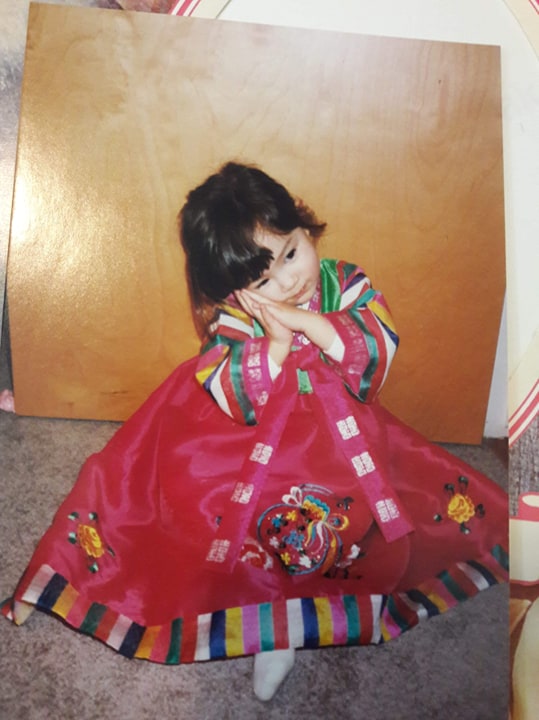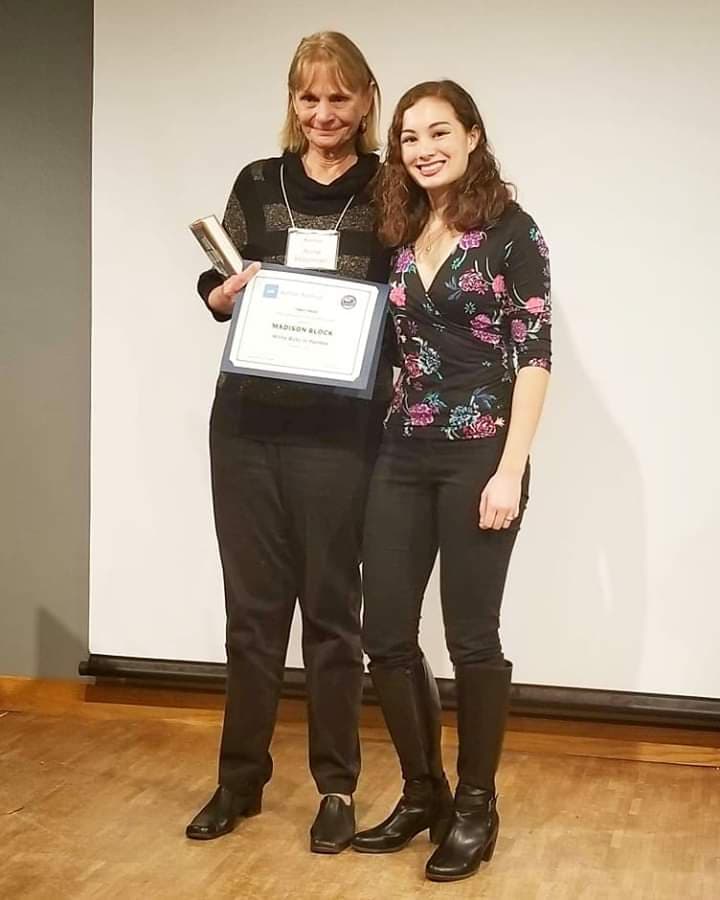
White baby in a Hanbok
I am 20, being ushered into the back room of my boyfriend’s mother’s barber shop in Massachusetts. She takes my hand and says a prayer in Korean, a language both familiar and foreign to me. I cannot speak, understand, or read it. My biological grandparents in Seoul must have spoken it, but my mother was adopted and raised by a white family in Minnesota. For me, the Korean language is a lost family heirloom.
I am 19, walking through the streets of Amsterdam. As I stop to buy souvenirs, the vendor asks me where I’m from. I tell him I’m American, and he says I look too exotic to be American. I tell him I’m half Korean, and he points at my face and says that makes sense. I wonder what he thinks Americans are supposed to look like.
I am 18, hanging out with a new group of college friends. One of them asks me if I’m North or South Korean.
I am 17, a recent graduate of Bitburg High School in Germany. I am at a bar with my friend because we can legally drink, and we take full advantage of being military brats in Europe. An Asian-American man approaches me and asks if I’m half Asian, and as it turns out, he’s half Korean too. I joke with him about how in high school, a girl in my Spanish class thought I was Puerto Rican and didn’t think I looked Asian at all. We talk about our shared ethnicity, and he mentions something about how his mom grew up in Korea but lives in Massachusetts now. I think he’s very attractive, and hope he likes me too.
I am 16. My Korean neighbor invites me over for lunch. She makes bibimguksu and tells me that she hopes that if she and her half Thai, half white husband ever have kids, they would look like me. She says she wants a white looking baby.
I am 13, walking into my history class. Some kids in class put on a K-pop music video before the bell rings. The teacher tells me one of the dancers looks like me. I don’t see the resemblance, but the dancer is beautiful and I wish I really looked like her.
I am 10, sitting with my mom at a Korean lesson. I learn the word for “pants.” It is the only Korean lesson we attend. Even though we don’t go back, I keep the flashcards in a drawer in my room just in case I ever want to learn more later.
I am 7, and my mom puts me in Taekwondo. She says I cry too much at school and thinks Taekwondo will toughen me up. Years later, I wonder if she picked Taekwondo as a way for me to connect with a culture to which we both wanted to belong; a culture that in a different life, would have been ours.
I am 6, and my mom comes to pick me up from school. The kid next to me asks me if I’m adopted. My classmates say I don’t look like my mom, and I get upset.
I am a year old, dressed up in a hanbok. My parents take a picture of me wearing it. When I find the picture as an adult, I mean to ask them where they got the hanbok, but I never do.
Sometimes I wonder if my ancestors ever imagined having a descendant that looks like me. Did my grandparents in Korea ever think they would have an American granddaughter with curly, auburn hair and freckles? Did my great-great-great-grandparents in Ireland ever think that someday a descendant of theirs would have ethnically ambiguous facial features?
I am now 21. My sister tells me to watch a new movie on Netflix that features a half Korean protagonist. It is the first time we have ever seen a movie about someone just like us.
We are mixed, hapa, Wasian– whatever you want to call it. We do not look like one thing. We do not belong to one culture. We will always have a hyphenated identity. Some people complain that having a hyphenated identity is un-American, and you shouldn’t consider yourself to be anything but American, but I disagree.
My hyphenated identity is what America is all about. My existence is proof of the melting pot. My confusion and curiosity about my heritage is an American struggle. We all come from somewhere else. We strive to keep the traditions from the motherlands alive while adding an Americana flair. When the vendor in Amsterdam told me that he did not think that I am what Americans look like, I should have responded, “I am exactly what America looks like.”

Written by Maddie Block | Last edited: 27th May 2019